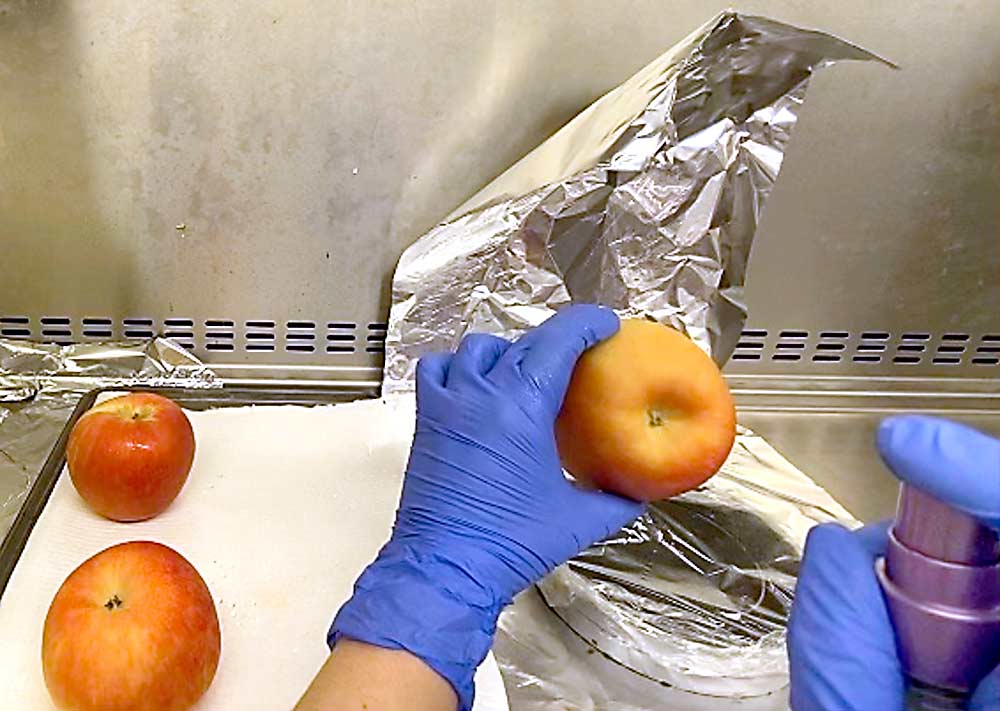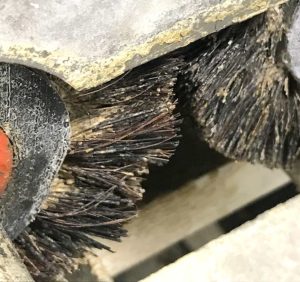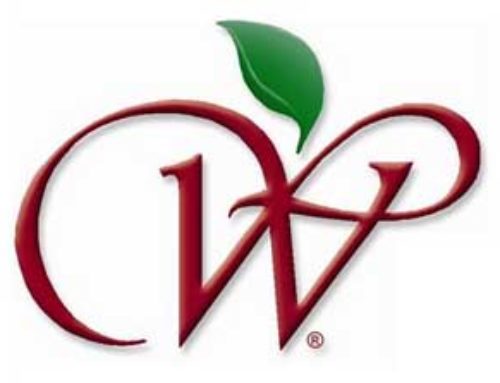
Listeria monocytogenes, the species of pathogenic bacteria that causes listeriosis, has been responsible for multiple apple recalls in the past several years, including a listeriosis outbreak in caramel apples in 2014 that led to illnesses and a new focus on risk management in packing houses.
A recent report from Michigan State University concludes that refrigerated and controlled-atmosphere storage does not contribute to the listeria problem, however.
“If anything, the numbers of the organisms on the fruit decline significantly with increasing storage time, perhaps lessening the potential for transfer and infection as storage time increases,” said MSU professor Randy Beaudry.
The report also sheds some light on where listeria can show up in the packing or processing facility, and what those facilities can do to mitigate the risk of a recall.
MSU professor Elliot Ryser said there’s been roughly one listeria-related recall involving whole or caramel apples each year since 2014. Listeria also has been found on sliced apples in the past.
Ryser’s lab has been studying the survival of listeria on apples since the 2014 outbreak. The report it just released summarizes results from a two-year study funded by the Center for Produce Safety that sought to determine the fate of listeria on apples during simulated long‐term storage. The report’s principal investigators were Ryser, Beaudry and North Carolina State University professor Sophia Kathariou.
The researchers found that the survival of listeria on inoculated fruit varied quite a bit. That variability may be due, in part, to the cultivar, the growing region (although regionality was not specifically tested), waxing methods and the season. But none of those factors jumped out as particular problems, Beaudry said.
The study’s results emphasized that current cultural practices should not raise safety concerns, he said.
The report also concluded that listeria present on dry contact surfaces such as conveyor belts and waxing machines might survive longer on apples than listeria in liquid, Ryser said.
The most important tool for packing and processing facilities is good sanitation practices, especially in the niches where listeria has been known to gather. Waxing points appear to be particularly problematic. The report’s findings do not warrant major changes in the waxing process, but cleaning and sanitizing waxing equipment is crucial to minimizing the presence of listeria, Ryser said.
Other listeria studies have been conducted in Washington state.
Former Washington State University professor (now a professor with the University of Georgia) Faith Critzer studied the connection between gray mold and Listeria monocytogenes in long-term apple storage. Gray mold is caused by the fungal pathogen Botrytis cinerea, which causes decay in apples and can create a suitable environment for listeria infection.
According to Critzer’s report (co-authored by Alexis Hamilton, now a postdoctoral associate at Virginia Tech), fresh Gala apples were harvested in 2019, inoculated with listeria and botrytis species and placed in storage for up to 11 months. They found that listeria persisted best on wounded apples inoculated with B. cinerea. They also found that the odds of detection significantly decreased the longer apples were in storage, echoing the MSU findings.
To mitigate the benefits botrytis provides for listeria, the industry should optimize fungicide programs to effectively target fungal pathogens, remove decayed fruit and organic debris from orchard floors, and remove physically wounded or visibly decayed apples as early as possible. When possible, apples with visible surface defects like bird pecks, stem punctures and limb rub should be removed from the harvest bin prior to storage, according to the report.
Another WSU professor, Meijun Zhu, studied the efficacy of applying low-dose continuous gaseous ozone to control listeria on Fuji, Granny Smith and Red Delicious in CA storage. She found that applying ozone gas facilitated the die-off of listeria during storage, regardless of 1-MCP (1-methylcyclopropene) pretreatment or the variety, and it did not negatively impact fruit quality, she said.
—by Matt Milkovich







Leave A Comment